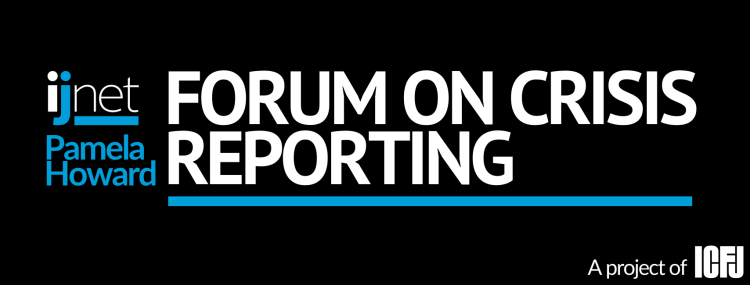
Disinformation, disease, climate change, rising authoritarianism, financial crises, technology disruptions – these are just some of the challenges facing our world, and they do not stop at any border. Trained journalists, who understand how to effectively cover these seismic and overlapping events, are vital to finding solutions. The IJNet Pamela Howard Forum on Crisis Reporting, a project of ICFJ, is designed to equip journalists with the expertise to provide meaningful coverage of critical global issues of local importance.
As part of our Forum initiative in five languages, reporters learn from leading experts through regular webinar programming on urgent issues of the day. They share information through online groups and collaborate with each other to tell cross-border stories. The initiative builds on the success of the ICFJ Global Health Crisis Reporting Forum, launched when the COVID-19 pandemic hit. Today, our growing community is made up of over 17,500 members from all over the world, who are countering disinformation and informing the public despite enormous challenges. See our impact and get involved below.
Just as almost every reporter became a “health reporter” during the pandemic, the global challenges ahead will demand that journalists build expertise to meet future crises. They demand an independent media to accurately and contextually report on both the global and local realities of the world’s most pressing issues.
We are honored to name this crucial initiative after ICFJ Vice Chair Pamela Howard, a staunch, dedicated supporter of our work for over 20 years.









